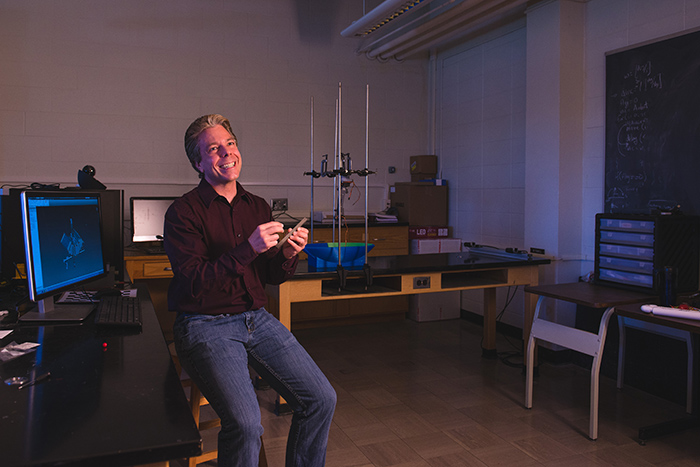
The CAREER Award is one of NSF s most prestigious awards that includes federal grant funds to support research and education around an award-winning proposal. For Holley, it will provide funding through 2021 that will allow him to work closely with undergraduate students at the university, exposing them to early research opportunities.
For me, interweaving teaching and research is really important, Holley said. This is the grant that not only allows and encourages but requires you to do that.
Holley and his students are busting neutrons from the nuclei of atoms and looking at the decay of those neutrons. Currently, there are two methods used for measuring the average lifetime of a neutron from the time it leaves the nucleus, but the results of those methods vary by eight seconds. The goal is to narrow that measurement down to a tenth of a second.
Over the summer, Holley worked with five undergraduate students, ranging from rising sophomores to rising seniors at Tech, on the project. Those undergrads
have continued to work with Holley through the fall semester and a student at Cookeville High School has also joined them in the lab.
This will enhance our ability at this university to involve undergraduates in cutting-edge research, Holley said. Giving undergraduates the opportunity to be involved in research early is important.
The funding has also allowed Holley to initiate an undergraduate research seminar series this semester, which invites undergraduates doing research at Tech to present their work. The series also invites guests involved in research across the country to campus.
Now, students are exposed not only to each other s research, but to ideas outside of the university so they can get a feel for what is going on across the country, Holley said.
Physics Chairman Stephen Robinson said Holley s work is not only important for the study of physics as a whole but also for the future of Tennessee Tech s physics program.
For the department and the university it provides more research opportunities, and so makes us more attractive to prospective students, Robinson said. It also helps to raise our profile as a research department and university.
To learn more about research happening at Tennessee Tech, visit https://www.tntech.edu/research.

